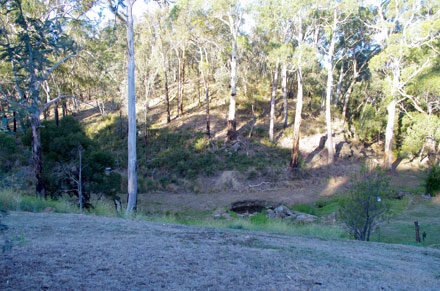
Climate Proofing Australia (CPA) welcomes the Federal Opposition’s climate change policy package that delivers on several of CPA’s policy priorities, including reinvigorating the Carbon Farming Initiative, developing new CFI methodologies, and creating “premium” carbon offsets to incentivise projects that deliver multiple benefits. Source: Timberbiz
CPA is a conservation and industry alliance comprised of Farmers for Climate Action, the Red Meat Advisory Council (RMAC), Greening Australia and the Australian Forest Products Association (AFPA). It is committed to advancing the role of agribusiness, conservation and natural resource management in Australia’s climate change and emissions reduction policy.
Labor’s recently announced policy includes the following commitments which respond directly to CPA’s asks:
A Shorten Labor Government will reinvigorate the land offset market, to help industry reduce pollution at least cost, and give farmers, the forestry industry and traditional land owners new opportunities to earn income [by]:
- Supporting the meat industry’s commitment to be carbon neutral by 2030 through a Strategic Meat Industry plan, with funding of $2 million over the forward estimates.
- Reviewing and strengthening the CFI with the aim of increasing land sector abatement opportunities and ensuring CFI methodologies are robust. This will include exploring the establishment of ‘premium’ land sector credits which provide substantial environmental, biodiversity and other co-benefits.
- Improving integrity and growth of the offset market by boosting carbon farming methodology research and development ($40 million over forward estimates) and introducing a carbon assessment standard.
Greening Australia CEO Mr Brendan Foran welcomed the commitment to develop ‘premium’ carbon offsets which could incentivise new types of carbon sequestration projects that integrate biodiversity and conservation outcomes with farming and forestry.
“With land-based activities also accounting for around 20% of the country’s greenhouse gas emissions, carbon farming presents a really important opportunity not just to reduce these emissions, but to improve our landscape at the same time,” Mr Foran said.
“A strengthened CFI and the introduction of ‘premium credits’ will mean that large-scale tree plantings can also achieve important co-benefits, such as reinstating wildlife habitat, supporting sustainable agriculture and cleaner waters in our rivers.
“To ensure this work can be rolled out at a viable scale across the country, CPA’s members will continue to work with Labor and the Government to build further bipartisan support,” he said.
Federal Labor’s Climate Change Action Plan has highlighted the enormous potential of Australian timber to help meet national emissions reduction targets set out by all Parties.
“The ALP plan includes $40 million for the development of new Carbon Farming Initiative (CFI) methodologies. A methodology for timber construction should be at the top of any queue,” Chief Executive Officer of the Australian Forest Products Association (AFPA), Mr Ross Hampton said.
“Timber has always been a great building material, but advances in technology, including the development of Cross Laminated Timber (CLT) and other timber building solutions accompanied by building code updates have opened many more doors for renewable timber to be used more widely in construction.”
The building construction code now allows fire protected timber buildings up to 25 metres.
“Timber is acknowledged as far more environmentally friendly than steel and concrete alternatives and yet there is no methodology allowing timber construction to bid for carbon credits through the Carbon Farming Initiative (CFI). Converting one cubic metre of concrete or brick, for a cubic metre of wood, eliminates approximately one tonne of carbon dioxide from being emitted into the atmosphere*,” Mr Hampton said.
AFPA has calculated that even a very modest increase in timber construction would sequester 11 million tonnes** of additional greenhouse gases over the coming decade.







